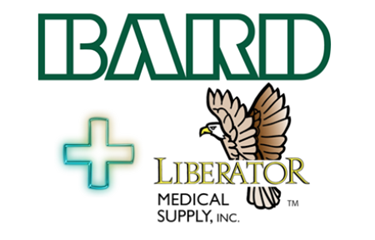Bard Completes Liberator Merger, Boosts Direct-To-Consumer Power

C.R. Bard has completed the acquisition of direct-to-consumer medical device distributor Liberator Medical Holdings (Liberator), a $181 million deal announced in November. Bard CEO Tim Ring has commented that the acquisition will move his company into faster growing markets for medical device technology intended for at-home use, part of a growing trend to reduce patient hospitalization.
Despite significant advances in mobile and cloud technologies and the consumerization of care delivery, many health industry vendors remain behind the curve in developing technology and platforms that meet the demand for healthcare solutions that engage patients beyond the hospital, according to a 2015 Chilmark Research report.
“The majority of today’s market is operating at a kind of standoff: Provider organizations are relying on their existing vendors to lead the way on new engagement tools, while those companies have been reactive, not proactive, with their customers’ engagement needs,” said Naveen Rao, in a Chilmark press release.
By acquiring Liberator, Bard is hoping strengthen its foothold in the direct-to-consumer market and jump out ahead of industry trends.
“This acquisition is a key building block in our strategy to access faster growing markets, “said Ring in a press release in November. “As the population ages and more healthcare is expected to occur outside of the hospital setting, we believe that having direct access to the patient in the home is strategically important.”
Liberator has built a business providing healthcare maintenance supplies for patient populations who are managing their chronic conditions at home. The company’s 5,000 product offerings — which include urological catheters, ostomy and diabetic supplies, and mastectomy fashions — are classified as Durable Medical Equipment (DME), a market that the Centers for Medicare and Medicaid Services (CMS) predicts will grow to $71.3 billion in 2023.
Ring stated that Bard will continue to work with other manufacturers who distribute their products with Liberator post-merger, and he looks forward to “adding a strong distribution platform with potential for future growth to our product and technology platforms.”
While executive boards for both companies signed off on the merger right away, the deal experienced some turbulence on its way through shareholder approvals. Several lawsuits filed by Liberator stockholders have alleged that the negotiated sale price undervalued the stock, reported TCPALM. Motions to dismiss, filed by Liberator, were struck down by a circuit judge and several more lawsuits have been filed in Nevada, where the company is incorporated.
Earlier this month, both Institutional Shareholder Services (ISS) and Glass, Lewis & Co. released reports showing the sale price was higher than the stock’s standalone valuation, and both advisory firms urged Liberator shareholders to vote for the merger. The plaintiffs’ lawyers still maintain that stockholders did not have enough information to make an informed decision.
Per a U.S. Securities and Exchange Commission (SEC) release, the deal was finalized on January 21, 2016.
